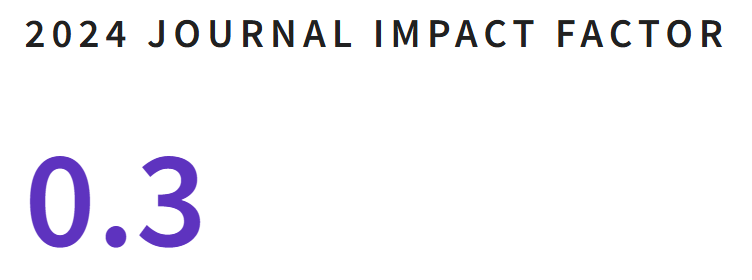Labor marginalization of those who form the LGBTTTIQ+ community in Mexico
DOI:
https://doi.org/10.35588/gpt.v15i44.5641Keywords:
Gender, masculinity, homophobia, labor marginality, LGBTTTYQ populationAbstract
The exercise of the human rights of the LGBTTTIQ+ community in Mexico presents serious limitations; which prevents its full development; This is due to the structural and sociocultural conditions of the sociopolitical system, which go beyond the assessment of the different expressions of sexual diversity, since these assessments are the manifestation of the real relations of production, power and domination that intersect with the gender. This research deals with the limitation referred to marginalization and exclusion from the workplace of the aforementioned community.
Therefore, the objective is to show the factors that give rise to the labor marginalization of the LGBTTTIQ+ community in Mexico, through a mixed methodology that allowed the analysis of the Survey on Discrimination based on Sexual Orientation and Gender Identity (ENDOSIG). 2018), which records the labor marginalization of this community. Finally, it is shown that the relations of domination are not explained only from gender or only from the social relations of production, but rather there is a diversity of structures that are intertwined to allow the reproduction of the system.
Downloads
References
Badínter, Elizabeth. (2007). XY, La identidad masculina. España: Editores Alianza.
Benston, Margaret. (1969). Political economy of womens liberation. Monthly review, 21(4).
Brown, Heather. (2012). Marx, on gender and the family. A critical study. Boston: Brill.
Cabrera, A. P. (2004). La diversidad y lo diferente en Sexualidades diversas México D.F. Programa Universitario de Estudios de Género - Universidad Nacional Autónoma de México.
Cañizo GoÌmez, E. y Salinas Quiroz, F. (2007). Conductas sexuales alternas y su relacioÌn con permisividad en joÌvenes universitarios. Documento sin publicar. MeÌxico, DF.
CONAPRED. (2018a). ENDOSIG. Documento Conceptual y Metodológico. Consejo Nacional para Prevenir la Discriminación. México. https://www.conapred.org.mx/
CONAPRED. (2018b). ENDOSIG. Cuestionario. Consejo Nacional para Prevenir la Discriminación, México. https://www.conapred.org.mx/
Connell R. W. (1997). La organización social de la masculinidad. En Teresa Valdés y José Olavarría (eds.), Masculinidad/es Poder y crisis. Santiago, Chile: Isis Internacional.
Cortés, F. (2006). Consideraciones sobre la marginación, la marginalidad, marginalidad económica y exclusión social. Papeles de Población, 12(47), 71 – 84. Toluca, México: Universidad Autónoma del Estado de México.
Fonseca, C. y Quintero, M. L. (2009). La teoría Queer. La de-construcción de las sexualidades periféricas. Sociológica, 24(69), 43-60.
Hobsbawm, E. (2013). La era del imperio. Barcelona: Crítica.
Ibarra Casals, D. (2013). Misoginia masculina: expresioÌn y etiologiÌa de la misogina en la intersubjetividad heterosexual. Conexões Psi, 1(1), 77-93.
Kimmel, M. (1997). Homofobia, temor, vergüenza y silencio en la identidad masculina. En Teresa Valdés y José Olavarría (eds.), Masculinidad/es Poder y crisis. Santiago, Chile: Isis Internacional.
Lapuerta, K. (2018). La representación de lo trans* en cine documental mexicano (2010-2017): hacia nuevas gramáticas cinematográficas trans. En A. Pons y S. Guerrero, [Coords.]. Afecto, cuerpo e identidad. Reflexiones encarnadas en la investigación feminista. UNAM.
Marqués J. V. (1997). Varón y patriarcado. En Teresa Valdés y José Olavarría (eds.), Masculinidad/es Poder y crisis. Santiago, Chile: Isis Internacional.
Marx, Karl. (1999). El capital. Crítica de la economía política. Tomo I. México: Fondo de Cultura Económica.
Montanero, A. M. (2017). Una mirada al feminismo decolonial en América Latina. Madrid: Editorial Dykinson.
NuÌñez Noriega, G. (2005). La diversidad sexual y afectiva: Un nuevo concepto para una nueva democracia. MeÌxico: Mimeo.
Quijano, A. (2014). Polo marginal y mano de obra marginal. En Cuestiones y horizontes de la dependencia histórico estructural a la colonialidad y descolonialidad del poder. Buenos Aires: CLACSO.
Rubio, J. (2010). Precariedad Laboral en México. Una propuesta de medición integral. Revista Enfoques Ciencia Política y Administración Pública, 8(13), 77-87. Santiago, Chile: Universidad Central de Chile.
O’Brien, M. (2021). Trans Work: Employment, Trajectories, Labour Discipline and Gender Freedom. En J. J. Gleeson y E. O’Rourke (eds.), Transgender Marxism. Londres: Pluto Press.
Serret, E. (2007). Identidad femenina y proyecto ético. México: Universidad Autónoma Metropolitana. https://www.researchgate.net/publication/31725786_Identidad_femenina_y_proyecto_etico_E_Serret
Stoller, R. (1968). Sex and gender. Nueva York: Jason Aronson Inc.
Rocha SaÌnchez, T. (2011). La homofobia y su relacioÌn con la masculinidad hegemoÌnica en MeÌxico. Revista Puertorriqueña de PsicologiÌa, 22. Puerto Rico.










